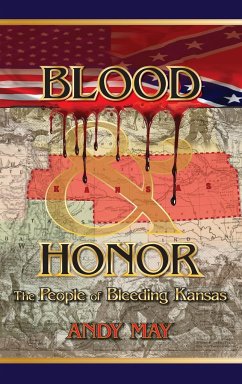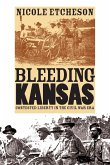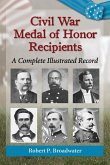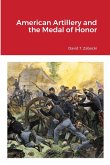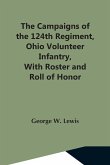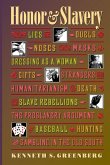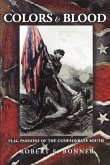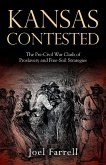To live in the Kansas Territory in 1854 and survive through the Civil War would take courage and stamina. The entire population that year was either pro-slavery or they were against slavery. As Andy May reveals in this remarkable, well researched history of that period, there were both noble and shameful motivations in the two factions. The anti-slavery, or Free-State side included the abolitionists. They may have had the purest of motives; however, there were some anti-slavery settlers that just didn't want to compete with slaves for work. The pro-slavery faction was the faction of the South. In their minds, blacks were born to be slaves. Andy May's in-depth research and attention to facts makes this history come to life. It is the story that has been missing from our American History textbooks and it is not taught in colleges and universities. While this time in our history has been romanticized by Hollywood, those renditions are less than accurate. That is a shame since this period in the Kansas Territory is the prelude to the Civil War and served as the catalyst for that dreadful time in the nation. There is a family connection in this book as well. Andy May's great, great, granduncle was Caleb May, a signer of all three Kansas Free-State Constitutions. By 1857, about three-fourths of the voting population was anti-slavery and a growing minority were for equal rights for blacks. By 1861 a majority were for equal rights. This was a remarkably rapid change in views. It seemed that when people moved to Kansas, they often quickly became anti-slavery, as Caleb May did. The idea that slavery was morally wrong was an emerging idea.
Hinweis: Dieser Artikel kann nur an eine deutsche Lieferadresse ausgeliefert werden.
Hinweis: Dieser Artikel kann nur an eine deutsche Lieferadresse ausgeliefert werden.

